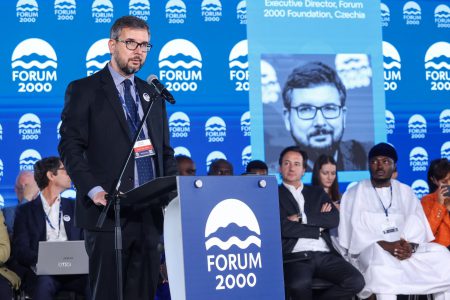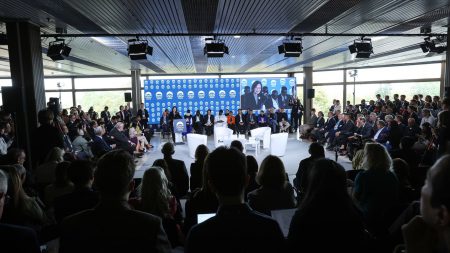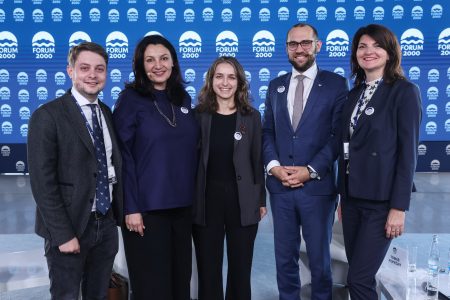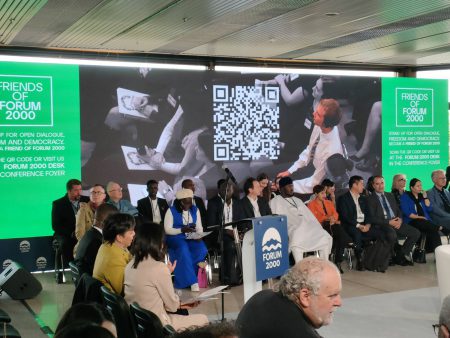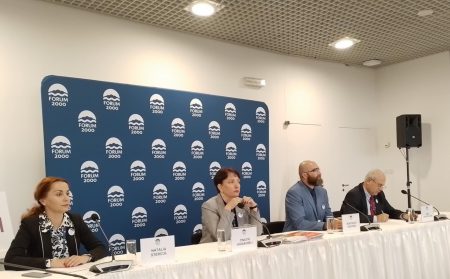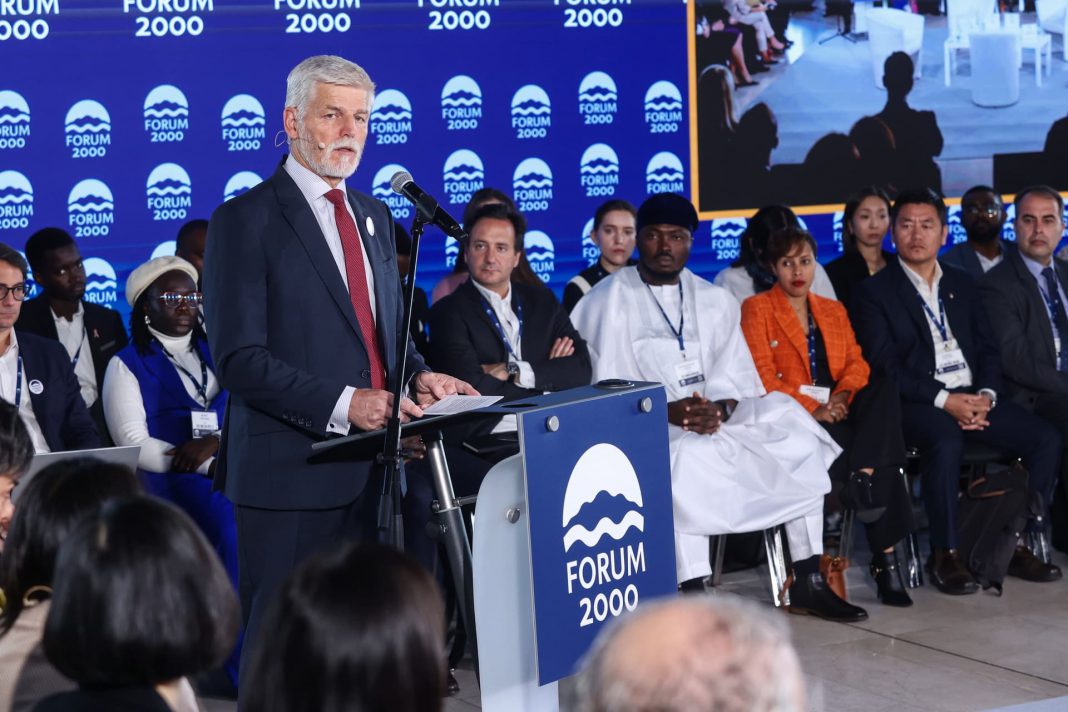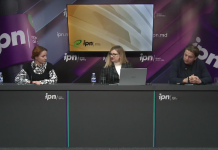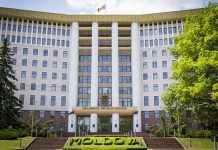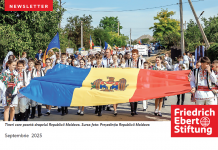During October 13-15, APE Executive Director, Natalia Stercul participated in the Forum 2000 Conference: “Providing Democracy’s Resolve and Resilience, which took place in Prague, Czech Republic. Against a backdrop of deepening global divisions, the rapid proliferation of technology-related risks, and the internal fissures within democratic systems, the conference was critically examined these challenges as well as possible solutions and ways forward. Special attention was focused on the Democratic Renewal, Global Democratic Partnership and Resilience.
Against a backdrop of deepening global divisions, the rapid proliferation of technology-related risks, and the internal fissures within democratic systems, the conference critically examined these challenges as well as possible solutions and ways forward. The discussions revolved along the following thematic areas: World Order on the Brink, Fragile Democracies, Democracy and Technology, Forum for Ukraine, Thematic and Regional Focus.
5 Big Ideas
‘We must stand up – consistently and united.’
As we reflect on the past decades, we realize that democracies and democrats “need to pay more attention to history and learn from it,” Czech President Petr Pavel emphasized during the opening of the 28th Forum 2000 Conference. One crucial lesson, highlighted by leading foreign policy expert Professor Walter Russell Mead, is that, for democracy to thrive, “we need to integrate geopolitics into activism” and secure “the firmness and the strength that can keep democracy safe and can give democracy the opportunity to grow.” This not only means military preparedness, but also leveraging “political influence,” former Polish President Lech Walesa noted. Taiwanese ex-President Tsai Ing-wen stressed that “we share an understanding of how precious and sometimes fragile democracies can be,” echoing Czech Senate President Miloš Vystrčil’s call to action: “If we want to have any hope of change, we must stand up – consistently and united.”
Listen to the Global South
Time and again, Western developed countries have attempted to impose certain democratic standards in Africa. According to Florindo Chivicute, executive director of Friends of Angola, “the EU should not view Africa as a place to distribute handouts and to lecture, but as a diverse place with a young and vibrant population.” He said that Africa is a continent where we need to “listen to the African voices” and “continue to invest in democratic stability.” Bolivian Senator Cecilia Requena added that, in Latin America, there is a need to “improve multilevel cooperation with civil society or indigenous people who struggle for their territories that are being exploited.” Meanwhile, as tensions rise in the Taiwan Strait and the South China Sea, Jagannath Panda, head of the Stockholm Center for South Asian and Indo-Pacific Affairs, warned that “the response to the escalating situation should not be a post-crisis response but rather a pre-crisis one.”
Fragility in established democracies
After years of peace and democracy, many countries and their citizens now take their liberties for granted. However, developments in Hungary, Slovakia, Poland, Georgia, and even the United States show that no one is “immune to democratic erosion” and the European Union is also “not well-equipped to address such trends,” said Zsuzsanna Végh, a political analyst and program officer for the German Marshall Fund. Richard Youngs, a senior fellow of Carnegie Europe, added that “the EU needs to get its own house in order.” Conference participants also raised concerns about democratic fatigue as well as the growing threats of disinformation, polarization, and populism – factors that are undermining even well-established democracies. As Jakub Klepal, director of the Forum 2000 Foundation, put it: “We need to work harder at making our institutions and governance mechanisms stronger.”
Education and a free press: responding to digital threats
Technological advances and digital tools are becoming more challenging than ever. Their use in the hands of populist and authoritarian forces is disrupting many of the foundations we believed in, undermining truth, elections, privacy, and free speech. However, these same technologies, including artificial intelligence, can also be harnessed to strengthen communities and democratic institutions. As Trisha Ray from the Atlantic Council explained, “AI can enhance transparency, but it can also enhance control.” As a solution, Radio Free Asia’s president, Bay Fang put it succinctly: “Invest in education and civil society, strengthen local actors to counteract disinformation, and support freedom of the press”.
Keeping the flag of democracy flying in Ukraine
“The heroes of Ukraine are leading a ferocious fight, not only for their freedom but for freedom in the world” said former Speaker of the U.S. House of Representatives Nancy Pelosi at the closing panel of the conference. “There are two faces of this war. This is an existential war for Ukraine, but also a war to keep democracy alive” said Sevgil Musaieva, chief editor of the Ukrainska Pravda news outlet. Ivanna Klympush-Tsintsadze, who chairs the Committee on Ukraine’s Integration into the EU, added that “democracy is our religion: that’s what we are standing for.” And to sustain the flag of democracy, Ukraine needs to become a vibrant democratic state, which “will destroy Putin’s lie that Ukrainians are Russians with accents. This would be a good thing for Russian democracy”, said Stanford University professor and former U.S Ambassador to Moscow Michael McFaul.
More information you can find here: https://www.forum2000.cz/en/projects/28th-forum-2000-conference
